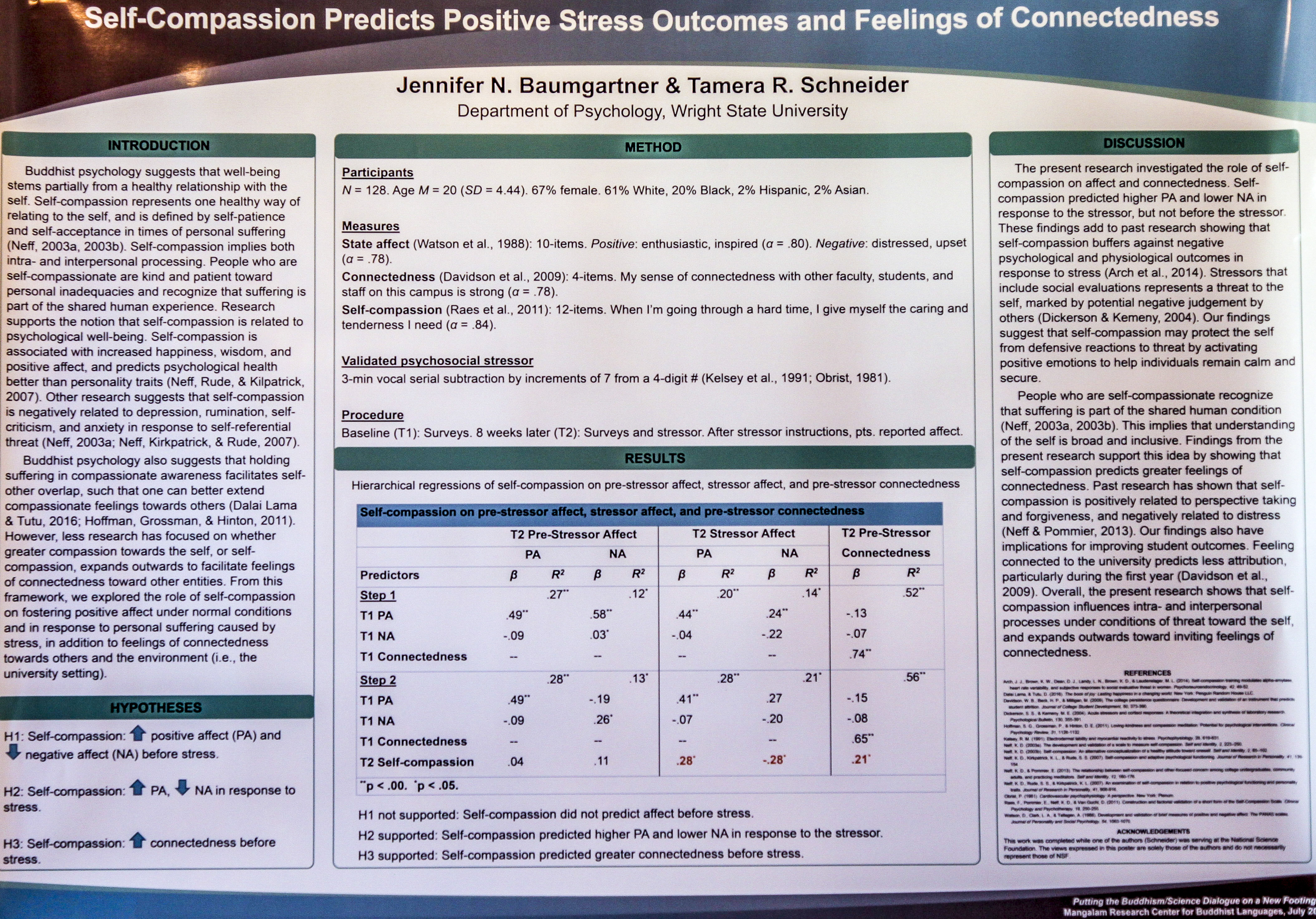Jennifer Baumgartner, Graduate Student, Wright State University
Buddhist tenets suggest that well-being stems partially from self-compassion. We explored the role of self-compassion, as defined by self-patience and self-acceptance in times of personal suffering, on emotional states and feelings of connectedness toward others. We expected that self-compassion would predict higher positive affect and lower negative affect at baseline and in response to a laboratory stressor, and greater interpersonal connectedness. 128 participants provided self-reports and engaged with a validated laboratory stressor that included socioevaluative threat. Regression analyses revealed that self-compassion predicted higher positive affect at baseline and in response to the stressor. Self-compassion did not predict negative affect at baseline, but did predict lower negative affect in response to the stressor. Self-compassion also predicted greater feelings of connectedness toward others. Self-compassion influences intra- and interpersonal processes under normal conditions and conditions of threat, and may expand outwards toward enhancing prosocial outcomes.
